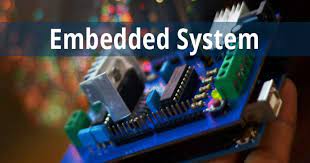.svg)
.svg)

With hands on coding using C Programming and assembly on ARM Cortex M Processor based Microcontroller
For Electrical, Electronics, Instrumentation Engineers
Course Type :
₹ 19597
Topic 1 | Introduction to Automotive Embedded Systems
Topic 1 | Programming Language Using C
Topic 1 | Introduction to Automotive Embedded Systems
Topic 2 | STM32 Architecture & CubeIDE Basics
Topic 2 | Variables & Data Types In C Programming
Topic 2 | STM32 Architecture & CubeIDE Basics
Topic 3 | Getting Started With STM32CubeIDE
Topic 3 | Conditional Branching Control Statements
Topic 3 | Getting Started With STM32CubeIDE
Topic 4 | Embedded C Programming
Topic 4 | Conditional looping control statements
Topic 4 | Embedded C Programming
Topic 5 | Creating a New STM32 Project
Topic 5 | Array & String Operations In C
Topic 5 | Creating a New STM32 Project
Topic 6 | Introduction to Proteus
Topic 6 | Memory Management
Topic 6 | Introduction to Proteus
Topic 7 | GPIO Programming & Digital Interfacing
Topic 7 | Introduction To Automotive Embedded System
Topic 7 | GPIO Programming & Digital Interfacing
Topic 8 | Timers & Delay Generation
Topic 8 | Controller Area Network
Topic 8 | Timers & Delay Generation
Topic 9 | ADC (Analog to Digital Conversion)
Topic 9 | Diagnostic
Topic 9 | ADC (Analog to Digital Conversion)
Topic 10 | ECU Fundamentals & Automotive Electronics
Topic 10 | UDS - Unified Diagnostic Service
Topic 10 | ECU Fundamentals & Automotive Electronics
Topic 11 | Automotive Diagnostics Basics
Topic 11 | Introduction To Arm7
Topic 11 | Automotive Diagnostics Basics
Topic 12 | UART Communication
Topic 12 | General Purpose Input/Output Registers
Topic 12 | UART Communication
Topic 13 | I2C Communication
Topic 13 | External Interfacing With LPC2148 Controller
Topic 13 | I2C Communication
Topic 14 | SPI Communication
Topic 14 | LCD & Motor Interfacing
Topic 14 | SPI Communication
Topic 15 | CAN Communication
Topic 15 | Serial Communication Protocol Using UART
Topic 15 | CAN Communication
Topic 16 | RTOS (FreeRTOS) 1
Topic 16 | Serial Communication Protocol Using SPI
Topic 16 | RTOS (FreeRTOS) 1
Topic 17 | RTOS (FreeRTOS) Part 2
Topic 17 | Serial Communication Protocol Using I2C
Topic 17 | RTOS (FreeRTOS) Part 2
Topic 18 | Final Project Development
Topic 18 | Serial Communication Protocol Using CAN
Course Description
Automotive embedded system is the backbone of modern vehicles to make them more efficient, safety (Brake system, Airbag system, Electronic Stability Program), driver assistance systems (Navigation, night vision, blind-spot detection) or to comply with legal necessities (reducing the emission of pollutants by intelligent engine control), comfy and secure. An increase in the complexity of modern cars also increases the demands overwhelmed on diagnostics, maintenance, and repair. Currently, there is a noticeable shortage of qualified automotive technicians with excellent skills. Vehicles will continue to become more complex; therefore, the need for good technicians will continue to grow. Hence there is a need for a practical training program in automotive electronics with an emphasis on Embedded System of Vehicle.
Course objectives
The automotive industry is today the sixth-largest economy in the world, producing around 70 million cars every year and making an important contribution to government revenues all around the world. The main objective of this course is to provide an understanding of the technology essential to the design and implementation of an embedded system using suitable hardware and software tools for automotive applications. The auto industry needs electrical, Electronics and computer engineers in ever-increasing numbers to deal with the number of electronics in the modern car. These engineers deal with electronics, controls, safety systems, infotainment systems, and vehicle-to-vehicle communication. This course endeavors a variety of topics of instant connection to industry and makes the members precisely proper for Automotive Industry.
Roles in industry
The technological progress in the electronics and telecommunications area made the evolution of various advanced systems in the automotive industry. Automotive embedded systems are typical microcontroller systems with specific purposes, normally with real-time computation captivity. In automobiles, embedded systems are used in infotainment and telematics, ADAS, airbags, head-up displays, electronic brake systems, power steering, and active suspension, among others.
Course Highlights
Copyright © 2025 ABCTrainings - All rights reserved